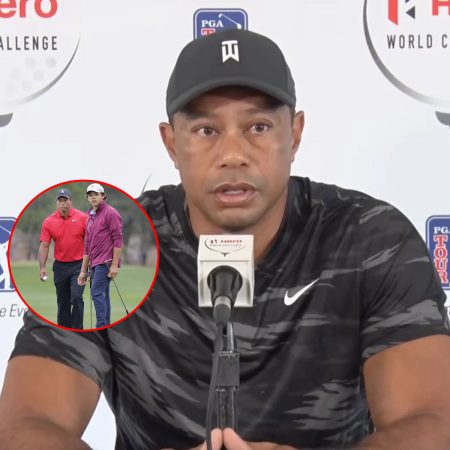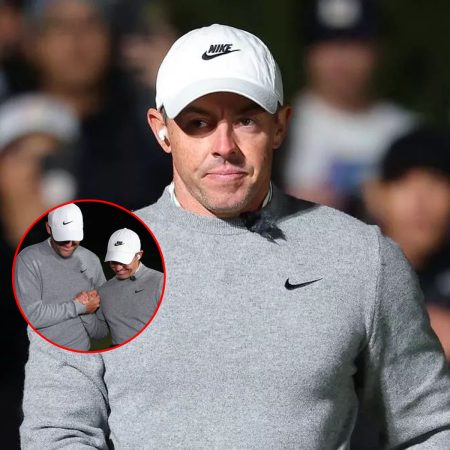In one respect, the striker has added another dimension to Manchester City, giving them a proper No 9. In another, nothing has changed

Chelsea, Chelsea, Southampton, Manchester United, Tottenham, Wolves, Tottenham. Look at Manchester City’s fixture list for the next five weeks and the big beasts outnumber the supposedly smaller fry. “That’s good,” said Pep Guardiola. It is the sort of spell that could be framed as make or break in a season, and their manager’s response scarcely sounded like the forced positivity of a man fearing the worst.
There is a logic to that. City’s kryptonite may not be the best, but the rest. They are seven points behind Arsenal. Five of those points have been lost in the last two outings at the Etihad Stadium, the loss to Brentford and the draw with Everton. The gap could be bigger still: Their previous home league game brought a 2-1 win against Fulham, but only after a 95th-minute penalty by Erling Haaland.
These seemed some of the sorts of matches he was signed for. One theory was that City scarcely needed Haaland at all, given that they won successive Premier League titles with an interchangeable array of false No 9s. The other was that he would make a difference in very different encounters: in the defining Champions League knockout ties, where chances can be at a premium and where misses have cost City, and on those days when they needed a professional predator to pierce a packed defence.
Which, arguably, he has done. Haaland was only a substitute, but he struck against Fulham. He scored against Everton, too, and from one of just two shots he had. He drew a blank against Brentford but in those three encounters with obdurate, defensive opponents, when City always had at least 70 percent of possession, he scored two goals – as many as his teammates mustered between them.
Welcome to the paradox of the prolific Haaland. In one respect, he has added another dimension to City, giving them a proper No 9: a giant who can run in behind defences, a Golden Boot winner for a side who used to share the goals around. In another, nothing has changed.
Even as they have assembled remarkable, sometimes record-breaking winning runs and posted points tallies in the nineties, once reaching 100, Guardiola’s side have the occasional aberration of a home defeat to a bottom-14 finisher: Crystal Palace last season, Leeds the year before, Wolves in 2019/20, Palace again the previous campaign.
They have not crafted a home record as immaculate as Liverpool’s – in the four seasons under Jurgen Klopp when they completed a Premier League campaign unbeaten at Anfield – or Arsenal’s now, with Mikel Arteta’s team yet to drop a point at the Emirates Stadium. There was a title-winning City side who got 55 points from a possible 57 at home, but they were managed by Roberto Mancini.
Before and with Haaland, there can be common denominators to City setbacks; Frank Lampard admitted Everton studied Brentford’s blueprint. There are recurring themes: defensiveness and directness, quick counter-attacks and scoring with their only shot on target – which Everton did, though Brentford, who peppered Ederson’s goal, did not. It can require wonder goals to get a result at the Etihad, from Andros Townsend for Palace to Demarai Gray for Everton. Quick elusive wingers can relish the space they get on the break against City. Adama Traore did for Wolves.

Erling Haaland scored Manchester City’s only goal in their draw with Everton
(Getty Images)
Guardiola often praises opponents who open up against his sides. He watched Everton and argued: “I would say they had eight at the back.” Which, some would say, are required to stop Haaland. It left Guardiola pondering whether to partner Julian Alvarez with the Norwegian in such situations. “Of course they can play together, especially against five at the back,” he said. “But to create these chances we have to make the process and sometimes for that you need other types of players to create these chances.” While Alvarez made a late cameo against Everton, Phil Foden was the substitute who looked likeliest to fashion a winner. Foden came on in the 86th minute and had more touches than Haaland mustered in the entire match, which reflected how crowded the penalty box was.
Introducing Alvarez earlier would have required removing a creator, and it goes against Guardiola’s natural instincts to sacrifice his beloved midfielders, though reintroducing an out-and-out centre-forward has already come at the expense of one. It was a nod to pragmatism that, it seemed, would help City win the most winnable games. Instead, Haaland has scored 27 times in 21 outings without arguably altering the traits of a team.
With or without a specialist striker, City can run riot. There were early-season days at home when they scored six each against Manchester United and Nottingham Forest, five against FC Copenhagen and four each at the expense of Bournemouth, Palace and Southampton, including three Haaland hat-tricks. There will no doubt be further routs. There will be defining games later in the Champions League where he will be charged with delivering bigger goals. But in the Premier League, where City have tended to compile points totals that insulate them against the occasional mishap, they may now need to beat their peers, and particularly Arsenal, to compensate for Brentford and Everton.
source: independent.co.uk








